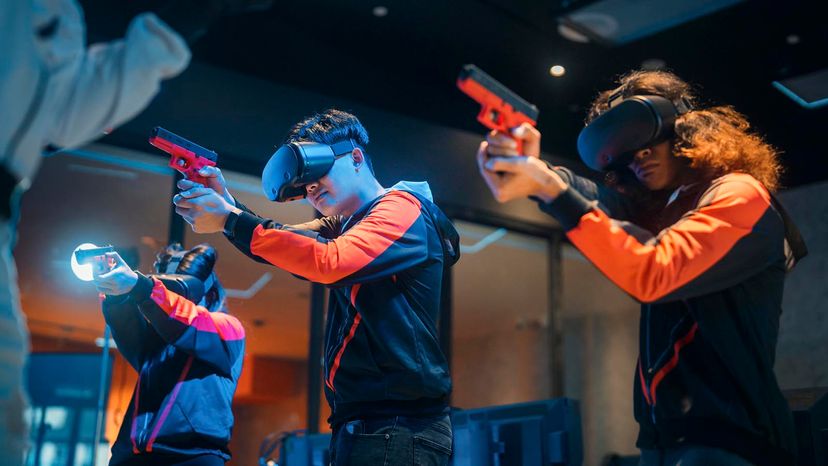In science, correlation doesn't imply causation. Changes in brain activity, for instance, don't necessarily lead to changes in behavior.
Even an obvious relationship between virtual aggression and real-life aggression, like acting out the specific behaviors portrayed in "Grand Theft Auto," isn't necessarily one of cause and effect. It may be that real-life violent psychopaths enjoy being virtual violent psychopaths, and they choose games based on that preference [source: Lillebuen].
In fact, there are considerable deficiencies in studies connecting violent gameplay with violent (or, more accurately, aggressive) behavior, including a failure to contextualize and a general inconsistency among results [source: Ferguson].
Psychotic Traits
For instance, a 2010 study published in the "Review of General Psychology," reviewed past studies that reported ties between violent games and violent responses.
The researchers found the subjects most deeply affected by violent gameplay were those who exhibited personality traits indicative of psychoticism, which include lack of empathy, nonconformity and impulsiveness.
People who fit this model are predisposed to see violence as an appropriate response to social conflict [sources: Markey, Harris].
A Lack of Causality
More recently, Stanford Researchers analyzed 82 medical research studies that discussed the connection between playing games with violent themes and violent crime.
"Current medical research and scholarship have not found any causal link between playing video games and gun violence in real life," the researchers wrote in Fortune.
While some of the studies stated there was a link between violent video games and aggressive behaviors, which can include pushing someone to deadly violence, there was still not enough data to back up that connection. The researchers stated, "Even when considering the range of action that this definition covers... such studies did not find a causal link between video games and violent behavior."
Beyond the Lab
National trends, which rely on much larger sample sizes than do lab studies, also go against a causative relationship between video games and behavior.
While sales of violent games are increasing (and games themselves are getting more violent), violent crime rates in the United States are going down [source: LiveScience]. In 2013, crime rates in the 10 biggest U.S. cities were the lowest they had been in four decades [source: Zadronsy].
And one 2013 study, published in the "Journal of Youth and Adolescence," found the behaviors of "at risk" kids to be unaffected by playing violent video games. "At risk," in this case, meant they exhibited symptoms of attention deficit disorder or depression, conditions widely believed to increase vulnerability to the potentially negative effects of video game violence.
The researchers looked at the behaviors of 377 such U.S. children, examining both their game-playing habits (violence levels, time spent playing) and their negative social habits (getting into fights, bullying, cutting class), and found no link between the two.
In fact, in a small number of children with attention deficit symptoms, playing violent video games seemed to correlate with slight reductions in bullying [source: Ferguson].
The APA Weighs In
In an open letter to the American Psychological Association (APA) published in 2013, a group of more than 200 psychology experts petitioned the APA to reexamine its resolution that "all violence be reduced in video games and interactive media marketed to children and youth" [source: APA].
As people of science, they explained, they simply could not support an official position based on what they considered dramatically insufficient evidence. In 2020, the APA reaffirmed its stance regarding the lack of causal relationship.



